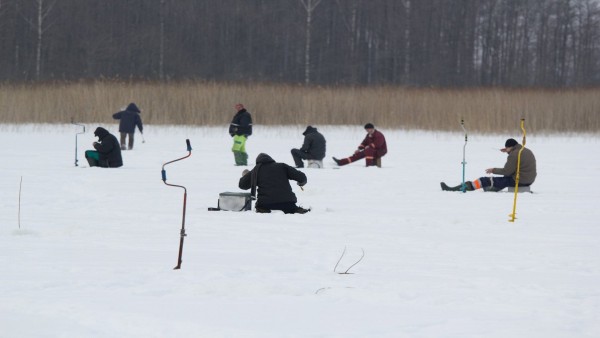Copts
| 08 اغسطس 2025Playing on Thin Ice: The Emotional Whiplash of Winning and Losing

Watching the score swing, the pulse rockets then crashes. In competition whether its a ranked match, a neighborhood league final or a late-night run on a coin flip online casino emotion doesnt just creep in; it storms the place.
Victory tastes electric, almost fizzy on the tongue; defeat, minutes later, can feel like a trapdoor. The mind yo‑yos, and the body follows, trying to steady itself on ice that keeps cracking.
◾️ Scoreboard refreshing Constantly checking stats intensifies both pride and panic.
◾️ Public bragging (or shaming) Sharing wins invites applause, but it also magnifies embarrassment when the streak ends.
◾️ Sleep debt Late sessions shorten recovery windows, making emotions sharper and less manageable.
◾️ Instant rematches Jumping back in before cooling down often locks the psyche into a tilt loop.
Each behavior seems harmless alone, yet together they prime him for sharper spikes and deeper slumps.
1- High self‑efficacy He believes he can fix things mid‑match.
2- Optimism bias Odds feel bendable, especially after one lucky break.
3- Competitive identity Winning isnt just nice; its proof of who he is.
4- Short emotional recovery time (or so he thinks) He swears he can shake it off, even when his choices say otherwise.
◾️ Define a stop rule before starting (time limit, number of matches).
◾️ Build a cool‑down ritual: walk, stretch, jot down one lesson.
◾️ Separate identity from outcome with simple language shifts (I lost versus I am a loser).
◾️ Track sleep, caffeine and hydration boring, yes, but mood is biochemical.
◾️ Keep a small win archive for bad days (screenshots, kind messages, clutch clips).
These tactics dont sterilize feeling; they soften the extremes so he can keep playing without burning out.
Victory tastes electric, almost fizzy on the tongue; defeat, minutes later, can feel like a trapdoor. The mind yo‑yos, and the body follows, trying to steady itself on ice that keeps cracking.
Adrenaline, Dopamine and the Sudden Drop
Neuroscience has a blunt explanation for the roller coaster. Anticipation spikes dopamine, success gives a short-lived euphoria, and loss yanks the rug. He might know the chemistry, but knowledge rarely softens the fall. The brain keeps rehearsing what if scenarios, replaying misclicks, missed passes, odd decisions. That rumination feeds the hangover that follows a high a mini grief cycle in fast‑forward.Micro‑Patterns That Amplify the Swing
Small habits often make the highs higher and the lows uglier:◾️ Scoreboard refreshing Constantly checking stats intensifies both pride and panic.
◾️ Public bragging (or shaming) Sharing wins invites applause, but it also magnifies embarrassment when the streak ends.
◾️ Sleep debt Late sessions shorten recovery windows, making emotions sharper and less manageable.
◾️ Instant rematches Jumping back in before cooling down often locks the psyche into a tilt loop.
Each behavior seems harmless alone, yet together they prime him for sharper spikes and deeper slumps.
Why Some People Crave the Edge
Psychologists talk about sensation seeking, but in practice it looks like this: he wants the story. The narrow win, the comeback, the I cant believe I pulled that off moment. Risk delivers narrative fuel. Four traits show up again and again in those who flirt with the edge:1- High self‑efficacy He believes he can fix things mid‑match.
2- Optimism bias Odds feel bendable, especially after one lucky break.
3- Competitive identity Winning isnt just nice; its proof of who he is.
4- Short emotional recovery time (or so he thinks) He swears he can shake it off, even when his choices say otherwise.
The Social Mirror
Friends, teammates, chat rooms they all become mirrors. Their hype or mockery refracts his own feelings. A supportive squad can buffer the shock of a loss; a toxic lobby pours gasoline on it. He learns quickly that muting, logging off or switching groups isnt weakness its regulation. What looks like a narrow mechanical tweak (turning off notifications) is really emotional architecture.Strategies to Ride Not Resist the Swing
◾️ Trying to eliminate emotion is nonsense; managing the arc is smarter:◾️ Define a stop rule before starting (time limit, number of matches).
◾️ Build a cool‑down ritual: walk, stretch, jot down one lesson.
◾️ Separate identity from outcome with simple language shifts (I lost versus I am a loser).
◾️ Track sleep, caffeine and hydration boring, yes, but mood is biochemical.
◾️ Keep a small win archive for bad days (screenshots, kind messages, clutch clips).
These tactics dont sterilize feeling; they soften the extremes so he can keep playing without burning out.






